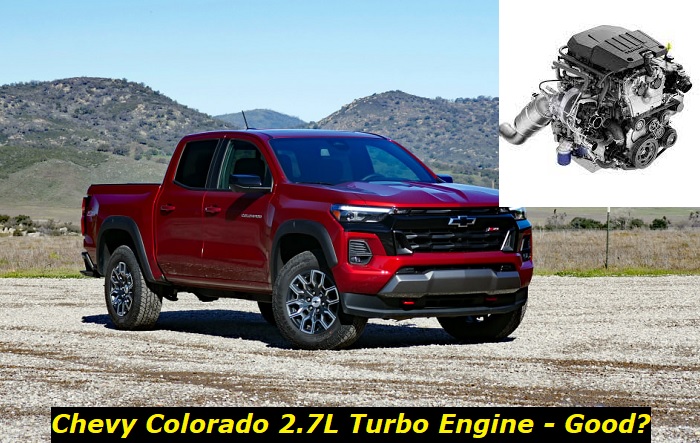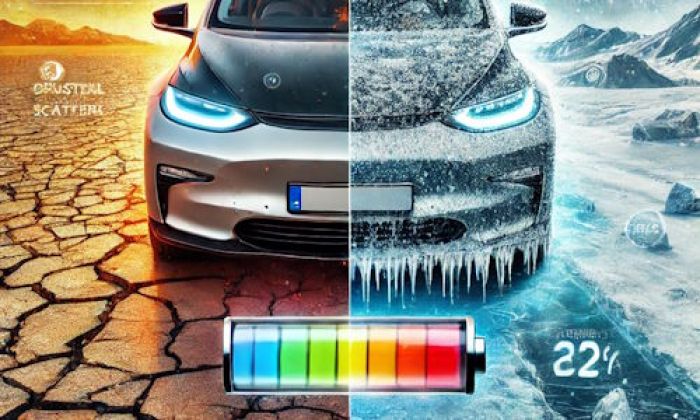Chevrolet has always been the company that offered cool and legendary engines. In most cases, these engines were with many cylinders and enormous displacement. But those times are gone. New ecology rules and new trends for fuel economy have killed many-liter engines. The new mid-size pickup truck is no longer available with the V6 which was the favorite engine of the Colorado buyers in the previous generation.
Today, we'll tell you about the 2.7L Turbo L3B engine that is offered in the 2023 Chevy Colorado and is basically the only option with three tuning levels. We'll see if those three versions have the same durability and are all OK for a buyer. We'll also look at the quality of the machine and the technologies it offers.

Key features and my opinion about the engine
- Production years:2018-now
- Average lifespan of L3B:170,000-200,000 miles
- Fuel supply type:direct injection
- Power range:310-325 hp
- Fuel efficiency:average
- Engine block material:aluminum
- Engine reliability score:medium
- The most common problems:wiring issues, carbon buildup on intake valves, very sensitive fuel supply system, AFM system problems.
Key features of the new Chevy Colorado 2.7L Turbo engine
This is the L3B engine that was first introduced by Chevy in 2018 and has also been used in Chevy Silverado, GMC Sierra 1500, Cadillac CT4, Cadillac CT4-V, and the Colorado's brother - the GMC Canyon. For all vehicles, this engine was tuned and prepared individually. The powerplant got a lot of criticism from experts and journalists but we wouldn't make any verdicts right now.
The Colorado is a mid-size pickup truck with almost 100,000 sales a year in the US. Another 20 or 30 thousand adds the Canyon with basically the same technology just a little different design. So, many Chevy buyers are going to have some experience with this new engine.
Here are some important features you should know about it:
- the L3B engine is the 2.7-liter powerplant with 4 cylinders and a BorgWarner turbocharger that allows it to show immense power as for its displacement;
- in the Colorado, it's offered in three different versions of tuning showing 237 hp and 259 lb-ft (detuned), and 310 hp with two torque versions - 390 lb-ft and 430 lb-ft;
- all engines come equipped with the 8-speed automatic transmission 8L90 developed by GM, this one proved to be quite good;
- the engine offers VVT (variable valve timing), start-stop, and also active fuel management for economy and efficiency;
- the intake valve lift control technology is pretty new - this engine has 3 different scenarios of how intake valves open and close;
- the water pump is electrically driven, it's also controlled by special electronic units to achieve more efficient cooling in your truck;
- the continuously variable oil pump is another feature to mention - it makes the lubrication more efficient and proper.
The engine seems to be packed with high-tech features and this is the first thing that makes us skeptical about its lifespan. Although we can't say now how bad will those oil pumps and water pumps perform, we've already seen those types of technologies in different engines and we weren't really impressed by their longevity.
We have to understand that GM makes its 4-cylinder engine into the main powerplant for trucks not because they want us to buy trucks every three years. They just have no other choice - whether you buy a 2.7-liter turbo truck, or you go for the electric truck which is not everyone's choice for sure.
What about the longevity of the 2.7L Trubo engine by GM?
This powerplant has only been used since 2018-2019 and we haven't seen a lot of reports about common issues. But looking at some of the technologies, we can come up with some average life expectancy figures that should be still checked and confirmed after a couple of years.
So, now we expect the 2.7L engine in the Colorado truck to last at least 150,000 miles for the base version (237 horsepower) and 110,000 to 120,000 miles for both more powerful versions. The version with 430 lb-ft of torque feels cool but we understand that the load for some of the engine parts is just unbearable for the 4-cylinder engine. So, you shouldn't expect this machine to live really long.
And while the internet assures us that the engine may last as long as the previous V6 in Colorado trucks, we completely disagree with this idea and think that the 2.7L Turbo engine is not made to last. It's made to save up fuel, to deliver great driving emotions, to do some job, but not to last forever.
What are the common problems with the 2.7L Turbo Colorado engine?
We believe the more powerful versions will have more common issues with the block and camshafts. They will need super attentive regular maintenance and high-quality parts and fluids to keep working over 100K miles. But the detuned version of the engine is going to be more durable and it will not cause as many problems for its owners.
Anyway, let's see what exactly may happen with this engine in your new Colorado truck:
1. Fuel injector issues and carbon buildup
This is the engine with traditional direct injection which is prone to issues like carbon buildup. GM dealership will gladly clean your valves for a couple of hundred dollars and you will have to pay this money pretty often. If you don't have the valves cleaned, you may be in trouble - the engine will lose power and start drinking up so much fuel that you will believe it turned into a V8.
Also, the injectors aren't cool. As in many other GM engines, injectors in all L3B engines are going to cause some issues. The bad news is that they are expensive to clean or replace.
2. Active Fuel Management issues
Although the AFM system has already been the subject of many recalls, GM still decided to use it in the L3B engine for the Colorado. Its actuators may get stuck and you will drive on two cylinders all the time. Also, some parts of this system may cause internal oil leaks leading to oil consumption and catalytic converter death.
If you experience problems with AFM, we recommend you take your Colorado directly to the dealer. The repair is quick but it will save your engine from complete failure.
3. Fuel and oil pumps
We haven't seen any reports yet, but this is a problem with high-mileage engines. These pumps are one of the many reasons we had to be very careful with life expectancy calculation. The pumps are electronically controlled and this can lead to failure which you won't notice immediately. If the engine is poorly lubricated or cooled, the turbo, head, and even block are at risk of huge failures.
We are sure that after these pumps go 100,000 miles, they become a lottery that you will eventually lose.
4. Gas mileage problems
Hey, GM, you made this engine for ecology and economy, so why do many owners claim they can never achieve the claimed fuel consumption?! GM says the new Colorado will get you 17 MPG in the city and 21 MPG on highways. High-torque and more powerful versions will obviously give fewer miles per gallon.
But in real life, people say they can't even get 15 MPG in the city and this is not good for a 4-cylinder turbo engine. Maybe, it has something to do with the driving style, but we've seen so many complaints that we are sure it's about the engine itself.
5. Engine harness problems
Before the 2023 Colorado was even introduced, GM issued a recall for these engines featuring the replacement of the faulty engine harness that could cause a short circuit and actually no-crank, no-start issues. The harness was replaced in some engines but we see the tendency that after recalls GM keeps having problems with the same units.
We still need to hear from the owners of the new Colorado, but it looks like the wiring problems are there in more or less all GM cars.
What should you do to drive your Colorado 2.7L Turbo L3B engine longer?
In many other engines' reviews, we insist on TLC and regular maintenance as the way to prolong the life of your powerplant. Today, we'll say that TLC and regular maintenance is the only way to get your 2.7L Turbo to 120-150 thousand miles. Without proper maintenance, it may die as soon as 40-50K miles.
These engines are not bad in terms of how they feel. But all those technologies don't feel durable and they make your new Colorado a little shabby in terms of longevity and reliability. Although we like the car and how it goes, we wouldn't buy the 2.7L Turbo powered Colorado right now - we would wait and check if GM solved all the common problems of this engine.
Also, we would only get the detuned version of the 2.7L Turbo. First of all, it saves you some money when you buy the truck. And then, it will last longer.
About the authors
The CarAraC research team is composed of seasoned auto mechanics and automotive industry professionals, including individuals with advanced degrees and certifications in their field. Our team members boast prestigious credentials, reflecting their extensive knowledge and skills. These qualifications include: IMI: Institute of the Motor Industry, ASE-Certified Master Automobile Technicians; Coventry University, Graduate of MA in Automotive Journalism; Politecnico di Torino, Italy, MS Automotive Engineering; Ss. Cyril and Methodius University in Skopje, Mechanical University in Skopje; TOC Automotive College; DHA Suffa University, Department of Mechanical Engineering






Add comment